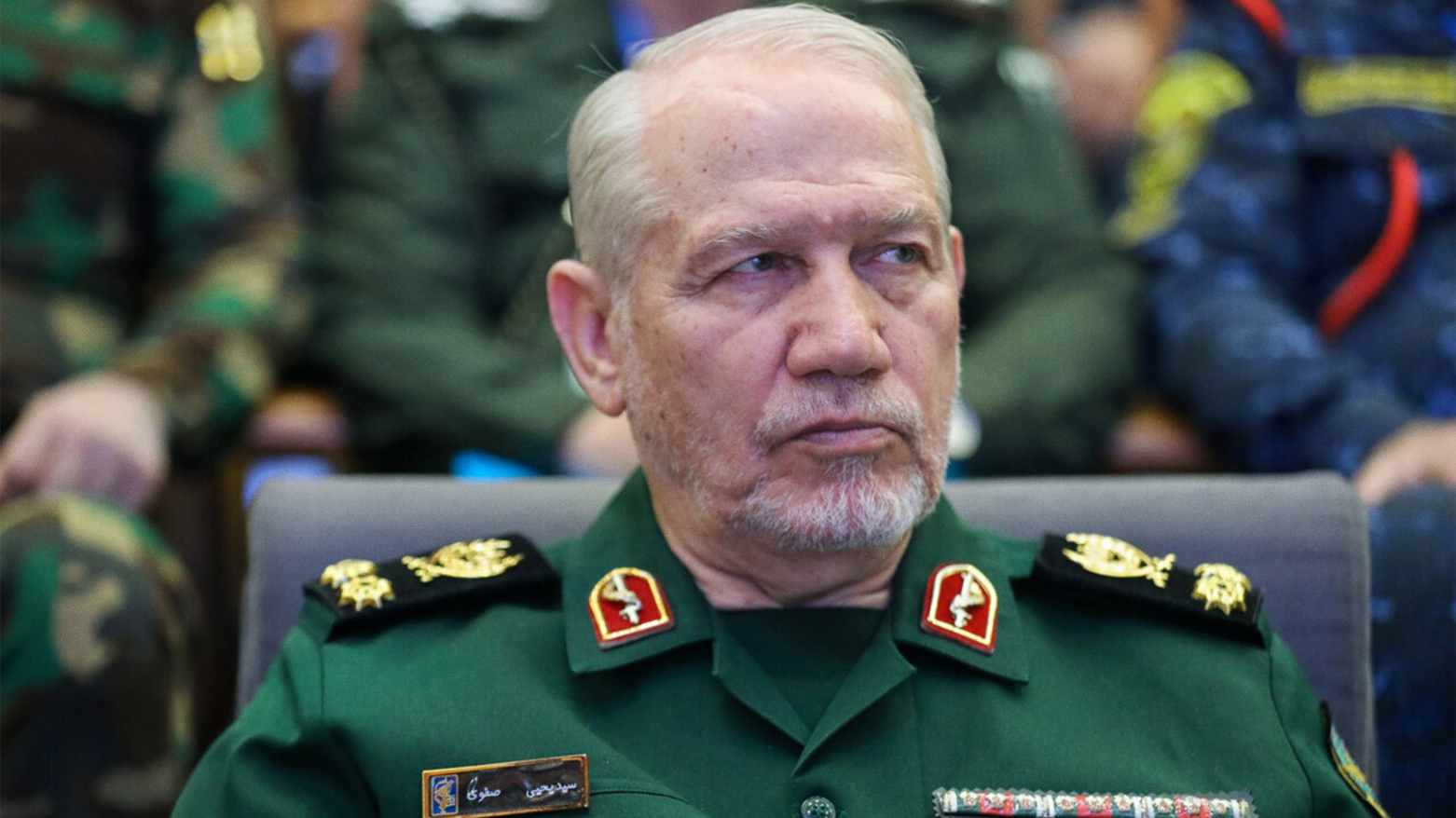Top Iranian General Warns New War ‘Plausible,’ Declares Nation in ‘State of War’
Iran's Maj. Gen. Yahya Rahim Safavi warns a new war is 'plausible,' declaring Iran is in a 'state of war' with the US and Israel. He revealed Iran's military is preparing for 'worst-case scenarios' with offensive capabilities, including missiles and drones, as reported by state media.

ERBIL (Kurdistan24) – A high-ranking military advisor to Iran’s Supreme Leader has issued a stark and sober warning that a new war in the Middle East is "plausible," declaring that the Islamic Republic is not in a period of ceasefire with its adversaries but exists in a permanent "state of war" where any lull in hostilities could collapse at any moment.
The official further revealed that Iran’s armed forces are actively preparing military plans based on "worst-case scenarios" and are guided by the principle that "the best means of defense is offense."
The grave assessment was delivered by Major General Yahya Rahim Safavi, a senior advisor to the Commander-in-Chief of the Iranian Armed Forces, Supreme Leader Ayatollah Ali Khamenei.
In statements carried by Iran’s official Islamic Republic News Agency (IRNA) on Sunday, Safavi painted a picture of a region on a knife's edge, suggesting that the current geopolitical tensions could escalate into a major conflict, one so significant that "perhaps after that war, no other war would occur."
His remarks provide a rare and candid glimpse into the strategic mindset at the highest levels of Iran's military establishment, signaling a posture of constant readiness and deep-seated mistrust of diplomatic overtures from the United States and Israel.
A Fragile Calm in a ‘State of War’
In his statements reported from Tehran, Major General Safavi dismantled any notion of a stable truce between Iran and its primary regional foes.
"A ceasefire means nothing more than a temporary cessation of fire, that can be resumed at any moment," he stated, according to the IRNA report. He emphasized that Iran perceives itself to be in an ongoing, active conflict, not merely a tense peace.
"Iran is not in a ceasefire but in a 'state of war'," Safavi declared, adding that any apparent calm "could collapse at any moment."
He grounded this assertion in the lack of any formal de-escalation frameworks, stating bluntly: "No protocol and no agreement has been written between us and the Israelis, nor between us and the Americans."
Safavi, who formerly commanded the powerful Islamic Revolutionary Guard Corps (IRGC), attributed this perpetual state of hostility to the strategic doctrines of his country's main adversaries.
He explained that, in his view, Washington and "Tel Aviv" believe that "peace is made by force." This perception, he argued, necessitates that Iran achieve and maintain a position of strength "at the regional and global level" to ensure its security and deter aggression.
Preparing for the ‘Worst-Case Scenarios’
Moving beyond strategic assessment, Major General Safavi detailed the practical military doctrine that flows from this worldview. He explained that Iranian military planners operate under the assumption that conflict is an ever-present possibility and must prepare accordingly for the most devastating potential outcomes.
"We in the military create scenarios based on the worst-case possibilities, and we prepare plans to confront the worst-case scenarios," he said, as reported by IRNA. This preparation, he stressed, involves a multi-pronged strategy that simultaneously enhances both Iran's defensive and offensive capabilities.
Safavi elaborated that this comprehensive strategy encompasses a wide range of national power, including "diplomatic, media, cyber, missile, and drone capabilities."
His specific mention of missile and drone forces highlights the central role of Iran's asymmetric warfare tools in its national defense and power projection doctrines. In a direct and assertive articulation of Iran's proactive defense posture, Safavi affirmed that "the best means of defense is offense."
He concluded that a state of constant preparation for conflict is, paradoxically, the most effective path to guaranteeing peace on Iran's terms. "Being prepared for war is the optimal path to ensure peace," he stated.
The Aftermath of the 12-Day War
Major General Safavi’s stark warnings are not theoretical but are delivered in the immediate aftermath of a recent and devastating 12-day air war with Israel that brought the region to the brink of a full-scale conflagration.
The conflict, which erupted just two months ago, was initiated on June 13 with a surprise military campaign by Israel. The offensive targeted a range of high-value Iranian military and nuclear sites, reportedly killing hundreds of military personnel, nuclear scientists, and civilians.
The Islamic Republic has stated that the conflict resulted in the deaths of 1,062 people within its borders, breaking the figure down into 786 military personnel and 276 civilians. In response to the initial assault, Iran launched retaliatory missile strikes against targets in Israel. A
ccording to official figures published by the Israeli government, these strikes killed 31 civilians and one off-duty soldier.
The conflict saw a dramatic escalation on June 22 when the United States intervened directly, carrying out a series of airstrikes on Iran’s key nuclear facilities at Fordow, Natanz, and Isfahan.
The direct hostilities were brought to a halt by a United States-brokered ceasefire that came into effect on June 24, ending the intense 12-day air war.
However, the economic repercussions of the conflict have been significant for both nations, with official data published this week suggesting both Iran and Israel suffered economically during the short but destructive engagement.
Safavi’s comments underscore the fragility of this ceasefire and reflect a prevailing belief within Iran’s military leadership that the recent war may only be a prelude to a larger, more decisive conflict.